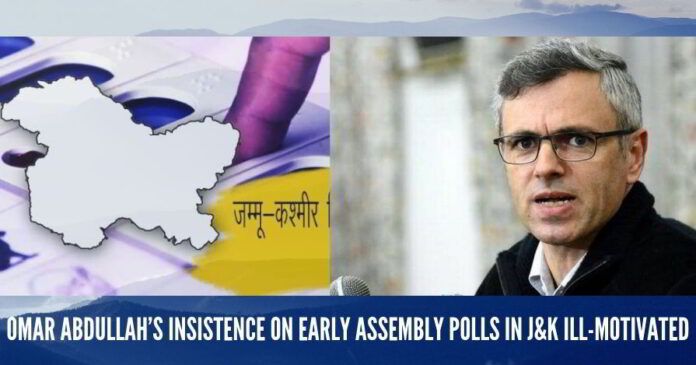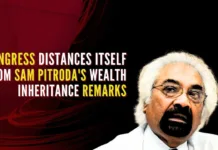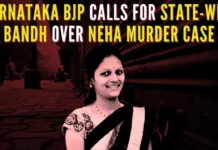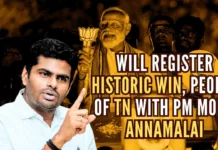
It’s absolutely clear that the intentions of Omar Abdullah are not really pious and that his insistence on assembly polls in J&K is ill-motivated.
It was on June 19, 2018, that the BJP in a dramatic manner withdrew its support to the Mehbooba Mufti-led coalition government in J&K. It advanced two main arguments. One was that the Mehbooba Mufti Government was separatist-friendly and that she had failed the nation. The other was that she had failed to dispense justice to Jammu and Ladakh and that her dispensation, like the earlier dispensations in the state, was Kashmir-centric. The same day, the state was brought under the Governor’s Rule under Section 92 of the J&K Constitution of 1957. In December 2018, the Governor’s Rule ended and J&K was brought under the President’s Rule. Under Section 92, J&K can be kept under the Governor’s Rule for a maximum period of 6 months.
J&K is the solitary state in the country which can be brought under the Governor’s Rule. The President’s Rule would be revoked only after a popularly-elected government is in place in the state. And, it is difficult to say as to when the assembly elections in J&K would take place. This, despite the fact that there have been some vague statements from the powers-that-be in New Delhi and J&K Raj Bhavan that assembly polls could be held before December 2019.
The next available opportunity will be later in the year when states like Maharashtra and Haryana go to the polls.
What’s the people’s attitude towards the President’s Rule? Do they really want assembly elections in the state? The people of Jammu province are seemingly happy with the President’s rule in J&K. Reports from Ladakh too suggest that the people in the trans-Himalayan region are very pleased with the Central rule. Interestingly, the common people of Kashmir have also not really opposed the President’s Rule. There is hardly any report from Kashmir to this effect. To be more precise, the people of all the three regions of the state are not really opposed to the idea of the state being kept under the President’s Rule for a longer period.
On the contrary, political parties in the state such as the National Conference (NC) of Farooq Abdullah and Omar Abdullah, the People’s Democratic Party (PDP) of Mehbooba Mufti, Bharatiya Janata Party (BJP), the Indian National Congress (INC), the National Panthers Party (NPP) and the Communist Party of India, Marxist (CPI-M) have all expressed themselves in favour of early assembly polls in the state.
However, of all the political leaders in J&K, Omar Abdullah is more vocal as far as the assembly elections in the state are concerned. Only the other day, he again urged Prime Minister Narendra Modi to hold the assembly polls at the earliest. Demanding early polls, the out-of-power Omar Abdullah said: “First and foremost on my list would be early free and fair assembly polls in the state. It has already been more than a year since an elected dispensation handled the affairs of state in J&K. Simultaneous Parliament and assembly elections were being anticipated earlier in the year, but the absence of an adequate number of security force personnel was cited as the reason to delay the assembly elections. There was another window of opportunity that presented itself with elections possible between the end of the Parliamentary election and the beginning of the Amarnath Yatra. This was reportedly the preferred choice of the special election observers appointed to advise the Election Commission about assembly polls but this option was not exercised either. The next available opportunity will be later in the year when states like Maharashtra and Haryana go to the polls. My expectation would be that J&K joins these states so that we have an elected government in place before the end of the year”.
At the same time, Omar Abdullah has expressed the view that there was the possibility of the BJP Government at the Centre not holding assembly polls in the near future as it wanted to implement its agenda in the state using Governor SP Malik. “It must be tempting for the BJP, and by extension, the Central Government, to extend Central Rule in J&K as long as possible. It has been easier for the BJP to get part of its political agenda implemented through a handpicked political appointee to the post of governor in J&K. There are many examples, but I will quote two: granting of division status to the Ladakh and Kargil region and taking reservation granted to people living along the Line of Control and extending it to people living along the International Border. Both these decisions have far-reaching consequences and should actually have been taken by a government-mandated by the people to do so, not by individuals appointed by New Delhi. So my second expectation would be that the Central Government and its handpicked people in the state resist the urge to play politics. While taking care of day to day governance issues, the primary focus must be to create a conducive atmosphere for early elections, thus allowing the people to choose their representatives and their government”.
Omar Abdullah has acknowledged that urban local bodies and panchayats are the third tiers in our structure of representative governance, but, at the same time, has said that J&K needed a full-fledged government. “The panchayats have their own role to play and have their own importance in the grand scheme of things. They are not interchangeable and the absence of one cannot be made up for by the presence of the other two”. “Theoretically speaking, in the absence of an elected Parliament, the work of a Member of Parliament cannot be done by a municipal corporation member, or, for that matter, by a Member of Legislative Assembly (MLA). Similarly, in J&K, the vacuum created by the absence of elected MLAs cannot be filled by having meetings with panchayat members or by apportioning money to them in larger amounts than usual. Therefore, my third and last expectation would be that the Centre stop trying to fill the gap created by the delayed assembly polls by suggesting that the third tier can adequately fill the space. It can’t, because if it could, why would we need elected governments in the rest of India,” Omar Abdullah has further said while urging the Prime Minister to hold assembly polls in the state.
Three things are clear from what Omar Abdullah has said: One, the grant of divisional status to Ladakh has stung him. Two, 3 per cent reservation for the people (predominantly Hindus) living along and near the International Border (Kathua to Sunderbani in Jammu province) has hurt him. Three, he wants a dispensation that enables Kashmir to decide the fate of the state and its people. Thus, it’s absolutely clear that the intentions of Omar Abdullah are not really pious and that his insistence on assembly polls in J&K is ill-motivated.
Note:
1. The views expressed here are those of the author and do not necessarily represent or reflect the views of PGurus.
- ‘Kashmir My core constituency’: Revisiting July 12, 2003 to understand politics, Omar Abdullah-style - March 15, 2024
- Total deviation from traditional approach: Seven takeaways from PM Modi’s March 7 Srinagar visit - March 9, 2024
- Status of political parties: Why is further J&K reorganization imperative? - March 1, 2024











[…] post Omar Abdullah’s insistence on early assembly polls in J&K ill-motivated appeared first on […]